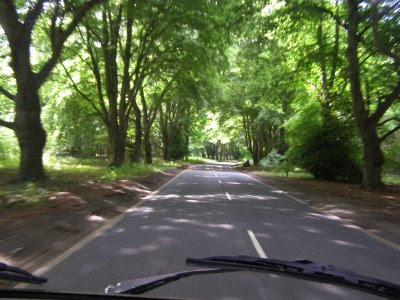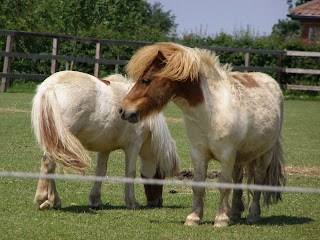Now, before I upset anyone I should be clear; individuals are always responsible for their actions, but trends in behaviour point to a more complex explanation.
The reason I want to write about black boys and young men is that they are a very small group with very big problems. This is therefore a good example of how privilege works. Only two percent of the UK's population is black and even in London where this population is concentrated, this only rises to ten percent. Meanwhile, we have a low murder rate and one of the lowest rates of gun deaths on the entire planet and yet ever few weeks there is another black lad smiling out beside the news headline, often too young to buy cigarettes, having been shot or stabbed to death by another black lad.
Murder isn't the only problem. Black men are massively over-represented in all the crime statistics in London, especially mugging, of which they are alleged to take the lion's share. Black men and women are more likely to be unemployed and experience all the health, housing and family issues that accompany poverty. Black men are much more likely that to be sectioned (detained under the Mental Health Act) than their white counterparts. And until this year, black boys consistently came out as the worst under-acheivers in UK schools. Black boys are three times as likely to get excluded from school (expelled) than their white peers.
Like I say, small group, big problems.
Now there was a time in history when we would have observed such trends and concluded that there was something in the
nature of black boys and young men that made them misbehave. We now call such explanations
racism. So instead we conclude that there is something in their
culture that's the problem
, a problem tucked out of sight inside a pocket called the
black community. In other words, nothing to do with anyone else
. Former Prime Minister Tony Blair accepted this view. He
spoke out against pretending that it wasn't black boys perpetrating gang violence in London, but insisted that;
"We need to stop thinking of this as a society that has gone wrong - it has not - but of specific groups that for specific reasons have gone outside of the proper lines of respect and good conduct towards others and need by specific measures to be brought back into the fold."
We are told that black fathers are disinterested in their offspring and in the absence of male role models these boys go bad. Meanwhile black children listen to rap music with lyrics that glamorise violence and celebrate conspicuous wealth. These black youths join drug-dealing gangs for the bling and belonging. It is
their culture, we are told; it is
their problem. The rest of us can tut and wash our lily-white hands of the matter. No innocent victims, after all, not truly innocent. And the parents might be upset, but they should have thought about that before they had children in such unstable circumstances.
This belief of the privileged, that black boys are basically rum 'uns, even went so far that when this year poor white boys overtook black boys as the worst under-achievers in UK schools, instead of discussing the issues of poverty, or the way we bring up boys, Michael Collins in the Sunday Times
hit upon the general sentiment:
"If it’s true that urban white boys have long since come to emulate the style, attitude and language of their black contemporaries, this latest development takes the transformation to the nth degree."
Not only are black children the architects of their own failings, but it's catching.
Okay so, I'm not black, I've never been a boy and I've never lived in or near a big city. However, logic dictates all manner of flaws in this received wisdom.
First off, there is no one black culture in Britain separate from the rest of us; our black people are a mix of native Britons* and immigrants, predominantly from the Caribbean and our former colonies in Africa. We haven't had a sudden influx of young black people arriving from some parody of an American ghetto wearing oversized sportswear and chunky jewellery, hell bent on
popping a cap in one another's
ass. The culture of black British people is a part of British culture, having been intertwined with it for hundreds of years. Black people do not live apart from white people, and black children receive messages about identity and values are from the same sources as the rest of us. Maybe there's a problem with the people that black children are told they are bound to become?
Since we now understand that the old myths about black men being over-sexed as racist propaganda, it is unclear why black men would make for unreliable fathers - but of course it is unclear whether not they
do compared to white men of a similar socio-economic status. We know that economic pressure and family break-down go together like a horse and a carriage, although we're told time and again that
economics is not the problem.
In any case, loads of white kids grow up without a Dad and a smaller proportion wind up in this much trouble. To blame absent fathers is to suggest that there is something special about black boys that makes them more difficult to control.
But the idea may have some bearing on the problem. We have a good idea that in this particular culture, behaviours exhibited by women are far more likely to be attributed to mental ill health; men have far more license to behave aggressively and recklessly as an understandable response to stress without acquiring a diagnostic label. This is one contributing factor to the fact that women are far more likely to be diagnosed with a mental health disorder than men.
So is it possible that misbehaviour by black boys is seen as more threatening that misbehaviour by white children? It is possible that we are more concerned about black boys fighting or shouting than their white counterparts? Are the ways in which black boys feel permitted to express their frustrations different to those of white boys. I don't know, I really don't, but I know that some white people
are intimidated by black men and historically our culture has supported this kind of anxiety. Maybe a culture that attributes gang violence to
Black Culture supports it still?
Then there's this music issue, which really makes me cross. Loads of children listen to music with dark, sexual or violent lyrics, whether it is the likes of Snoopy the Dog or Jay Zed, or some proper music with a decent tune. It is absolutely ludicrous that
politicians can be
talking about hip-hop in relation to the
deaths of young people. It is like having a debate about whether it was
listening to the Bee Gees that drove Blair to take us to war in Iraq (although actually, that's a theory;
Brown likes them too you know...). If you want to look at violence in our culture, you really don't need to turn on your radio.
Point is, if we start from the premise that black people are much the same as white people in all important respects, then the position of black boys is a big social problem to do with racial inequality in our society, to do with prejudice and a significant imbalance of power. This is not to say that any killer can stand in court and claim diminished responsibility on account of social disadvantage. Nor is it to say that many black people haven't managed much better.
However, perfectly nice people, who may have nothing but sympathy for these young dead men, will clutch at these kinds of straws in order to defend their own privilege - in order to deny that social inequality exists.
The problem with black boys is undoubtedly about culture, and the gang culture is part of that (an equal opportunities culture, by all accounts). But there are also issues of the way that British culture treats black boys, the expectations and suspicions that we have of them which may originate from the times some of us were masters watching for signs of rebellion. There is the role of the Metropolitan Police, which is now trying very hard to heal the wounds caused by a history of racist abuse. And most of all, I would guess, is the issue of the economic inequality, poverty and deprivation in the inner-cities which leaves lots of children vulnerable, but particularly those children who have been let down in so many other ways. It is
our culture and therefore our problem.
* Black people whose black and/ or white ascendants have been in the UK for many generations.
 Probably the best thing about living in this corner of the country is that whenever we go south of here we get to travel down roads like this. The woods are gorgeous all year round, so long as there's a little light. In fact, I think this is probably prettier in the autumn, but it is still jolly nice just now.
Probably the best thing about living in this corner of the country is that whenever we go south of here we get to travel down roads like this. The woods are gorgeous all year round, so long as there's a little light. In fact, I think this is probably prettier in the autumn, but it is still jolly nice just now.





